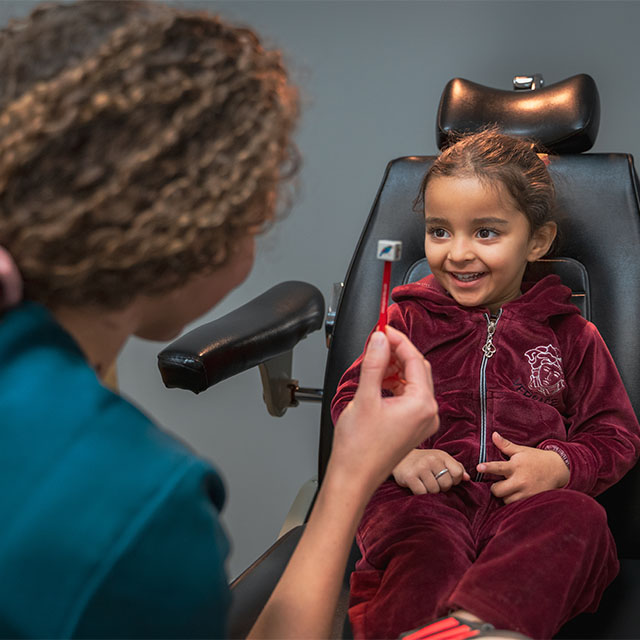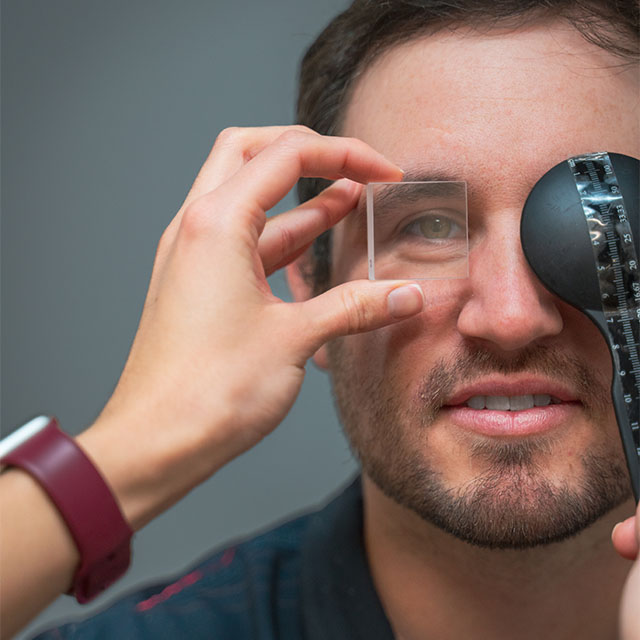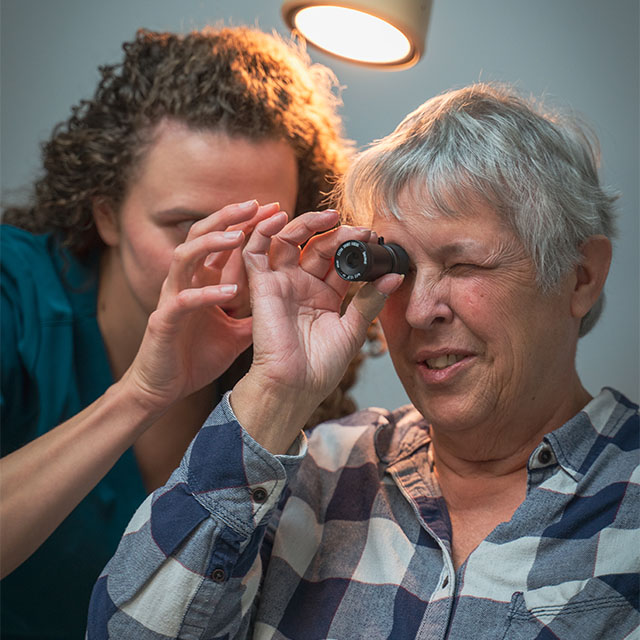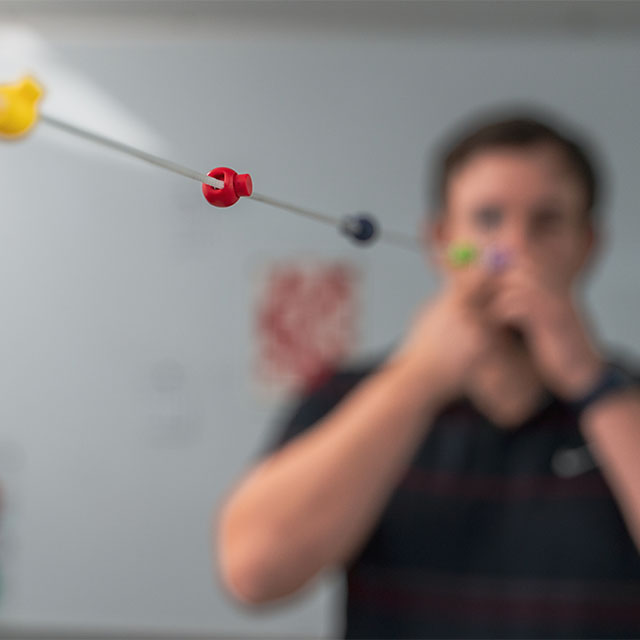We Assess Visual Skills at Our Kelowna Eye Care Center
When we think about healthy vision, we tend to picture seeing things clearly in front of us. But visual skills impact how we use visual and remember visual information. Kids develop visual skills through their early years.
But when an eye problem prevents kids from developing visual skills, it can impact how they see, learn, and behave.
We perform a basic visual skills assessment (also called binocular vision assessment) for every child that visits us for a routine eye exam. But a comprehensive visual skills assessment can identify issues and helps us develop a personalized treatment plan.

Eyes Work As A Team
Binocular vision is the term for both eyes working together. Each eye gathers visual information that the brain combines into a single 3D image. Vision and eye problems can prevent the brain from processing vision from both eyes equally.
Dr. Capo is uniquely qualified to diagnose and manage conditions affecting binocular vision, having completed a residency in pediatrics and vision therapy.
What's A Binocular Vision Assessment?
Children with binocular vision problems can struggle with routine tasks. They may feel clumsy or self-conscious, shying away from sports or struggling with schoolwork.
The root of these problems often comes from a poor connection between the brain and the eyes. When your child sees double, their left and right eyes don’t sync up. When there’s miscommunication or poor visual development, the brain can learn to ignore visual input from one eye.
Assessing the health and functionality of both eyes, together and separately, can help pinpoint the problem.
Get Personalized Support For Your Child's Vision

A visual skills assessment evaluates aspects of vision not included in a routine eye exam. Your child may not tell you if they’re experiencing poor vision—because they might not understand that what they see or feel is different from what everyone else experiences.
Dr. Capo performs this specialized testing for kids who need additional support to achieve healthy, comfortable vision. By getting to know your child’s visual abilities, Dr. Capo can create a customized vision therapy plan tailored just for them!
What We Do

We're here to help your little one protect their sight for years to come. Look out for your kid's life-long vision with early eye care.

When the brain experiences trauma, visual processing may be disrupted. Specialized Vision Therapy treatment can help with your recovery.

Daily tasks can be difficult for a person with low vision. With a low vision assessment and function solutions you can still live your best life.

Vision therapy uses evidenced-based solutions & personalized care to improve visual function. Find out if your child's vision is working as it should.
